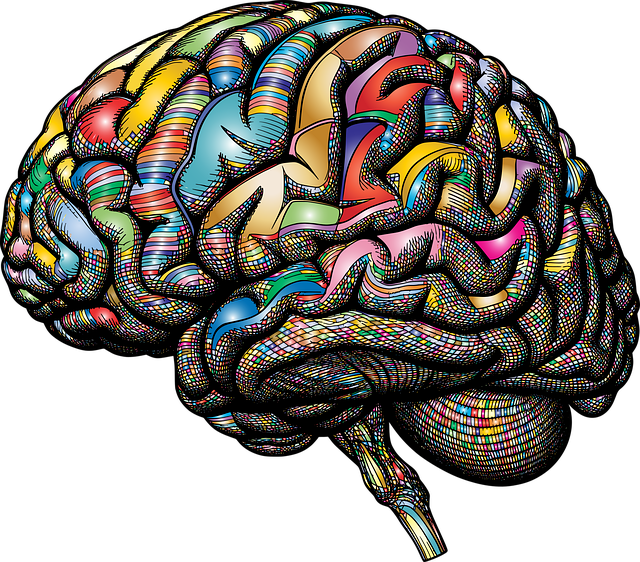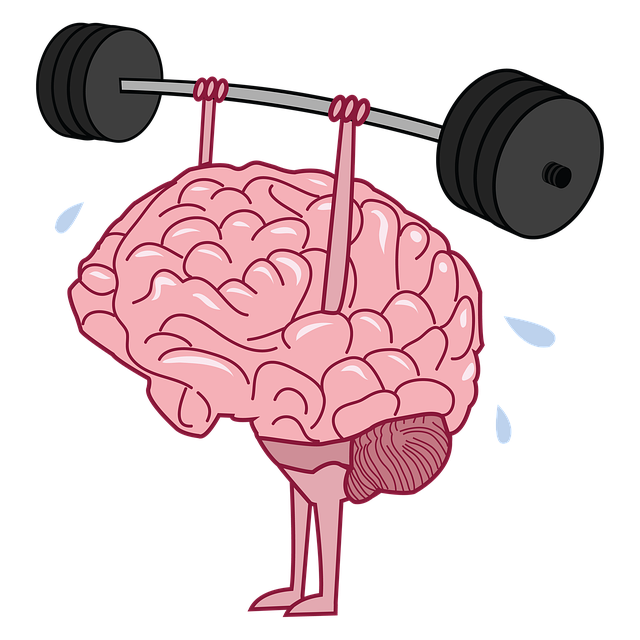Mental wellness is paramount for overall well-being, impacting thoughts, feelings, and relationships. In a stressful world, prioritizing mental health is crucial, especially for those with learning disabilities or demanding careers. Denver Learning Disability Therapy emphasizes tailored self-care routines like Social Skills Training and Stress Management Workshops to prevent burnout, particularly in healthcare providers. Identifying personal needs through assessment is key to crafting effective self-care practices, such as meditation, exercise, and hobbies, which enhance well-being and build robust coping mechanisms. Integrating self-care into daily life, despite a fast-paced lifestyle, fosters resilience, self-esteem, and mental wellness coaching program development. Denver Learning Disability Therapy offers personalized guidance based on unique client needs, combining assessments with evidence-based practices to design comprehensive self-care plans addressing stress management, emotional regulation, and cognitive challenges holistically.
Developing a mental wellness self-care routine is essential for navigating the challenges of daily life. This article guides you through understanding mental wellness, identifying your personal self-care needs, and building an effective routine that fits your busy schedule. We explore the transformative power of self-care practices, highlighting how Denver Learning Disability Therapy can customize routines tailored to individual requirements. Embrace holistic well-being and discover strategies to enhance resilience and thrive.
- Understanding Mental Wellness and Its Impact on Daily Life
- Identifying Personal Needs for Self-Care Routines
- Building Blocks of an Effective Self-Care Routine
- Integrating Self-Care into Busy Schedules
- The Role of Denver Learning Disability Therapy in Customizing Your Routine
Understanding Mental Wellness and Its Impact on Daily Life

Mental wellness is a crucial aspect of overall well-being that impacts every area of our lives. It influences how we think, feel, and act daily, affecting our relationships, work performance, and general quality of life. Understanding mental wellness involves recognizing not just the absence of mental illness but also cultivating positive emotional states and resilience to navigate life’s challenges. In today’s fast-paced world, where stress and pressure are prevalent, taking care of our mental health has become more essential than ever.
For individuals in demanding fields or those managing learning disabilities, such as those seeking Denver Learning Disability Therapy, prioritizing mental wellness is vital. It can involve incorporating tailored self-care routines, like Social Skills Training or participating in Stress Management Workshops Organization, to manage stress and prevent burnout, especially for healthcare providers. By integrating effective burnout prevention strategies, individuals can enhance their ability to cope with life’s demands, fostering a healthier and more fulfilling daily routine.
Identifying Personal Needs for Self-Care Routines

Identifying your personal needs is a crucial step in developing an effective self-care routine tailored to your unique circumstances. This process involves introspecting and understanding what helps you feel balanced, energized, and resilient. Everyone’s journey is different, especially when considering hidden challenges like learning disabilities, which can impact mental wellness. In Denver Learning Disability Therapy, professionals often emphasize the importance of recognizing individual needs, as coping skills development and mood management are key aspects that require specialized attention.
By evaluating your daily life, relationships, work or study demands, and any existing mental health conditions, you can pinpoint specific self-care practices needed to thrive. This might include activities such as mindful meditation, regular exercise, maintaining a healthy sleep schedule, engaging in hobbies, connecting with supportive networks, or seeking professional help when necessary. Each of these elements plays a vital role in fostering overall well-being and ensuring a robust coping mechanism.
Building Blocks of an Effective Self-Care Routine

Creating a robust self-care routine is essential for maintaining mental wellness, especially when navigating life’s challenges. At Denver Learning Disability Therapy, we emphasize that self-care isn’t a luxury but a fundamental practice to foster resilience and overall well-being. The first step involves identifying your personal needs and preferences, as what works for one person might differ from another. Start by assessing your daily schedule and allocating dedicated time for activities that nurture your mind, body, and soul. This could include practices like mindfulness meditation, regular exercise, or engaging in hobbies that bring you joy.
A well-rounded self-care routine should incorporate various building blocks, such as stress reduction methods, inner strength development through mindfulness or therapy, and cultivating positive thinking by reframing negative thoughts. By integrating these elements into your daily life, you create a buffer against life’s stressors and develop the mental fortitude to tackle challenges head-on.
Integrating Self-Care into Busy Schedules

In today’s fast-paced world, where schedules are packed with work, family, and social commitments, integrating self-care into our routines can feel like a daunting task. However, for those seeking Denver learning disability therapy or exploring mental wellness coaching programs development, understanding the importance of self-care is a crucial step towards enhancing overall well-being. It’s not about carving out time for an hour-long meditation session every day; instead, it involves implementing small, manageable practices that cater to one’s unique needs and preferences.
Effective self-care strategies can range from simple activities like setting aside 15 minutes for mindful breathing exercises to engaging in regular physical exercise or practicing hobbies that foster creativity and relaxation. The key is to recognize that taking care of oneself is not a luxury but a necessity, especially for individuals managing learning disabilities or navigating the complexities of modern life. By incorporating these practices into busy schedules, one can cultivate resilience, boost self-esteem improvement, and create a sustainable foundation for mental wellness coaching programs development.
The Role of Denver Learning Disability Therapy in Customizing Your Routine

Developing a personalized mental wellness self-care routine is a powerful tool for managing and improving your overall well-being. Denver Learning Disability Therapy plays a pivotal role in this process by offering specialized guidance tailored to individual needs. Their expertise lies in understanding that every person’s journey to mental health is unique, requiring a customized approach. Through comprehensive assessments and a deep dive into one’s personal challenges, Denver Learning Disability Therapy helps clients design a self-care routine that incorporates effective strategies for stress management, emotional regulation, and enhanced mood stability.
This process involves not only teaching valuable coping mechanisms but also addressing any underlying learning disabilities or cognitive challenges that might impact mental health. By integrating evidence-based practices with the latest research in mental health education programs design, healthcare provider cultural competency training, and mood management, Denver Learning Disability Therapy ensures that clients gain practical tools to navigate their mental wellness journeys effectively.
Developing a personalized mental wellness self-care routine is a powerful tool for navigating life’s challenges. By understanding your unique needs and integrating practices that nurture your mind, you can enhance overall well-being. Denver Learning Disability Therapy plays a vital role in this process, offering guidance to create a customized routine tailored to individual requirements. Through dedicated practice, individuals can foster resilience, improve daily functioning, and ultimately lead more fulfilling lives.











